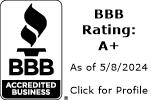Becoming a polygraph examiner presents a lucrative career opportunity.
According to Salary.com, while the average salary for certified polygraph examiners ranges from $55,000 to $67,000, experienced examiners might be drawing about $150,000. It’s also exciting to note that the demand for lie detector examiners has risen significantly over the years, a reflection of the widespread adoption of polygraphs across multiple states and legal jurisdictions.
Even if you aren’t motivated by the prospects of hefty paychecks, becoming a polygraph examiner allows you to contribute to the administration of justice.
However, relevant training and certification are necessary before you can administer lie detector tests.
Here’s a comprehensive guide to the academic credentials, technical competencies, and soft skills that every polygraph examiner must possess.

Who Is A Polygraph Examiner?
A polygraph examiner is a professional trained to administer polygraph exams, commonly known as lie detector tests.
Conducting a polygraph test has become a standard practice in most legal jurisdictions across the United States. The exams may be administered during criminal investigations to rule out potential suspects or after paroling convicted offenders to monitor their potential risk to the general community.
It’s the role of a polygraph examiner to perform the tests, prepare a comprehensive report, and interpret the results for all concerned parties.
However, polygraph exams aren’t unique to the criminal justice system. Several industries have since incorporated these tests into their operations as a means of monitoring integrity and compliance.
What Is a Polygraph Examiner’s Job Description?
Conducting a polygraph test is an intricate process that requires proper organization. Therefore, a critical step in selecting the best polygraph examiner is understanding what these professionals do.
Each polygraph test is preceded by adequate planning and preparation.
First, a polygraph examiner will secure lie detector equipment and inform the potential examinee of plans to have them undergo a polygraph test. The examinee must provide unequivocal consent for the test results to stand up to scrutiny.
If both parties agree, the polygraph examiner will identify a suitable location for the lie detector test. Moving further, the following step is to conduct the evaluation and prepare a comprehensive report.
Finally, the examiner will interpret the test results to other concerned parties – investigators, prosecutors, parole officers, etc.

Training and Accreditation of Polygraph Examiners
To become a polygraph examiner, you must enroll in an accredited polygraph training program.
Most polygraph programs are accredited by the American Polygraph Association. However, several other accreditation bodies exist, including the National Polygraph Association and the American Association of Police Polygraphs.
Most states have their own polygraph accreditation bodies, too. Keep that in mind, especially if you intend to practice in specific jurisdictions.
Polygraph training typically lasts ten to thirteen weeks in the private and law enforcement sectors and up to six months in the US federal government. The programs impart technical skills in polygraph administration, including setting up lie detector equipment, asking relevant questions, analyzing the responses, and ensuring the validity of the test results. Students also learn the legal and ethical issues surrounding polygraph tests.
Note that some schools would require you to possess an associate or bachelor’s degree in related fields before joining their polygraph training programs. However, qualifications in criminal justice fields, such as law enforcement and investigation, are highly encouraged.
After completing the course of study, aspiring polygraph examiners must undergo 1 – 2 years of internship under the supervision of a licensed polygraph examiner. Internships introduce you to the practical world of polygraphs, offering preliminary exposure to the challenges commonly faced by polygraph professionals.

Certification and Licensing
While not mandatory, certification is highly recommended. It boosts your credibility and increases your prospect of landing lucrative jobs in high-profile institutions.
You may apply for certification to the same polygraph accreditation bodies.
After getting certified, you can boost your reputation further by joining local polygraph examiners associations.
A license is only required in U.S. states that require a polygraph license but is not required in states that do not offer or require a license.
The examiner may also need to have professional liability coverage, depending on where they administer lie detector tests.
Are Soft Skills Necessary To Become A Polygraph Examiner?
Most polygraph training programs emphasize hard skills. However, various soft skills are critical to administering effective lie detector tests, some of which are mentioned in the rundown:
- Communication skills to articulate requirements to examinees
- Organizational skills to set up the polygraph equipment and examination room
- Analytical skills to interpret the test results
- Teamwork to collaborate with other stakeholders
- Personal integrity to safeguard confidential information
Secure Your Future By Enrolling in a Polygraph Course
With the widespread adoption of lie detector tests across several jurisdictions and industries, we’re likely to witness an unabated surge in the demand for certified polygraph examiners. Therefore, now is the ideal time to launch your career as a polygraph examiner.
Remember that while most people can administer polygraph tests with basic training, interpreting the test results requires in-depth analytical skills. Besides, you’ll need a college or university degree in a recommended school to secure a job as a polygraph examiner in the criminal justice system. On the contrary, a professional does not require a college degree to work as an examiner in the private sector.






